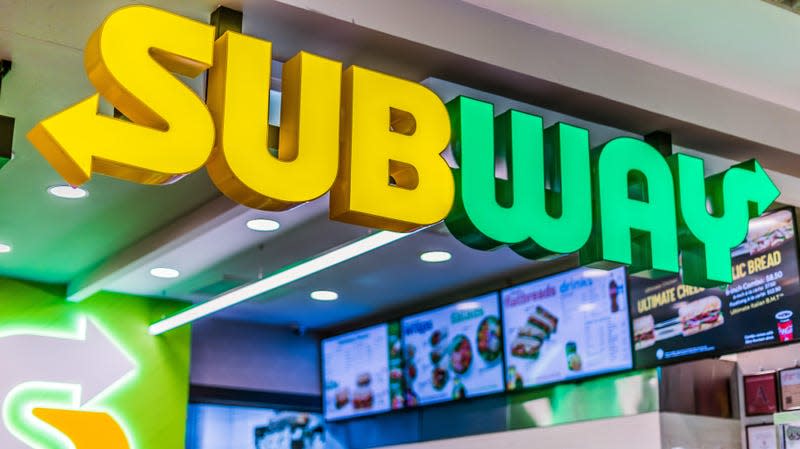The Mystery of Subway's Tuna Lives On as Lawsuit Is Dismissed

We may never definitively know the content of Subway’s “tuna” after all. A class action lawsuit filed over the alleged mystery meat has now been dismissed two and a half years after it was filed.
The class action lawsuit was originally filed in January 2021 in Northern District of California federal court by plaintiffs Nilima Amin and Karen Dhanowa, who both claimed that the advertising for Subway’s tuna salad was false and misleading. More specifically, the lawsuit alleges that Subway’s tuna doesn’t contain any of the namesake fish at all and accuses Subway of common law fraud, intentional misrepresentation, and unjust enrichment, among other causes of action. While the lawsuit made waves across the internet, while creating a permanent dent in Subway’s reputation, it was officially dismissed last week.
Read more
“Subway serves 100% real, wild-caught tuna,” a subway spokesperson said in a statement emailed to Gizmodo. “The lawsuit and the plaintiff’s meritless claims, which have always lacked any supporting evidence, resulted in the spread of harmful misinformation and caused damage to Subway franchisees and the brand.”
With Subway’s tuna being such a conundrum, The New York Times conducted an investigation a few months after the lawsuit was filed. Julia Carmel from the outlet procured tuna salad from several Subway sandwiches and sent those samples to a commercial lab that could test for the fish’s DNA. The lab was unable to find any detectable tuna DNA in the samples, and Subway went on the offensive.
The restaurant launched subwaytunafacts.com a few weeks after the Times piece sowed the seeds of widespread public skepticism. Subway claims on the website that it uses 100% wild-caught tuna for its sandwiches and previously claimed that the lab’s results are not uncommon when using samples of cooked tuna.
This is not the only time Subway has drawn the ire of its consumers over its ingredients. In 2020, Ireland’s Supreme Court ruled that Subway’s bread couldn’t legally be called “bread” in the country since it had too much sugar in it, reported NPR. The court cited the Value-Added Tax Act of 1972, which says that the amount of sugar in tax-exempt bread cannot exceed 2% of the weight of the flour—the sugar in Subway’s bread reportedly measured-in at 10% of the weight of the flour.
Update July 31, 2:30 p.m. EST: This article was updated to include comment from Subway.
More from Gizmodo
Sign up for Gizmodo's Newsletter. For the latest news, Facebook, Twitter and Instagram.

